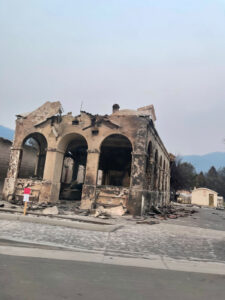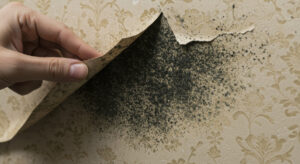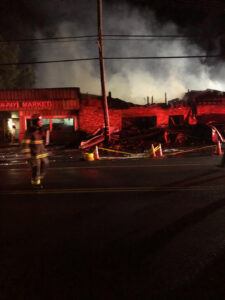A house fire is a nightmare that many families experience every year. While we do everything we can as humans to remain fire safe, accidental fires and intentionally set fires happen. Most may not realize the dangers of remaining smoke damage on the surfaces of their home, as well as furniture and clothing. Even the smallest fire, one that was localized to a single room, can produce and spread so many dangers into your home.
What makes up smoke?
Smoke is composed of toxic chemicals, soot, carbon monoxide and carbon dioxide. When a house burns, chemicals from the building materials and paint add to the toxicity which makes smoke even more dangerous. For this reason, wildfires tend to produce a lot of toxins due to the continuous burning of vehicles, oils, paints, and metals. Very small, fine smoke particles can also settle directly into your lungs, causing upper respiratory issues.
My house survived a fire. When is it safe to re-enter?It is not recommended to re-enter your home without safety gear due to microscopic smoke particles remaining on every surface. Too much movement inside the home will also cause smoke particles and soot to spread, causing more headaches and need for cleanup. West Coast Fire & Water can help deal with fire damage cleanup so you can get back to living in your home as soon as possible.
How harmful is smoke, really?
Very small, fine smoke particles can settle directly into your lungs before or after a fire, causing upper respiratory issues. Smoke can also affect greatly those who already suffer from asthma, severe allergies and COPD. If you continue to keep and use possessions affected by smoke damage, you will be constantly exposing yourself and others to the damages of smoke.
What about smoke from a barbecue?
Surprisingly, smoke from a barbecue grill can contain carcinogens when meat fat burns. Burning fat produces smoke containing carcinogenic compounds called polycyclic aromatic hydrocarbons (PAHs). A 2016 study in Food Chemistry found that removing fat drippings from the process of cooking meat reduced the levels of PAHs produced by grilling by 48 to 89 percent. High-temperature cooking methods, including grilling, also produce carcinogens known as heterocyclic amines (HCAs). This happens when meat and poultry are cooked at temperatures higher than 300 degrees, causing a reaction of amino acids, sugar and creatine. This process has been linked to several types of cancers. (Lee JG, et al. (2016). Effects of grilling procedures on levels of polycyclic aromatic hydrocarbons in grilled meats. Food Chemistry. DOI: 10.1016/j.foodchem.2015.12.017).
Despite this information, you do not need to completely avoid grilling. Catching fats from meats with foil or special trays, using gas or propane grills over charcoal (starter fluid for charcoal contains pollutants) and pre-cooking meat indoors so the majority of fat that could drip and smoke is removed are just a few ways you can make grilling healthier for you and the environment. Keeping grill smoke away from your home is also very important to prevent smoke buildup, as well as a house fire.
All this information may seem very overwhelming, especially if you or someone you care about has experienced a house fire. Give West Coast Fire & Water a call today, we can help answer any additional questions or schedule a smoke damage inspection so you can get back to a clean, smoke free home!



